Eggplants are a super easy crop to grow, especially in tropical climates like Vietnam. With the ability to sow seeds year-round and a mere two-month growing period, you can easily add this delicious vegetable to your garden. Join us as we explore a simple guide to growing big, healthy eggplants!
1 Tools and Materials for Growing Eggplants at Home
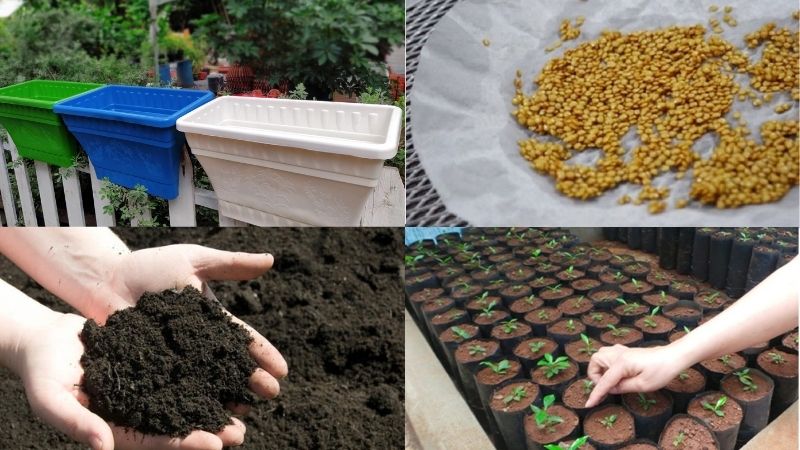 Tools and Materials for Growing Eggplants
Tools and Materials for Growing Eggplants
- Plastic planting pots (alternatively, you can use old buckets or similar containers)
- Eggplant seeds
- Potting soil (or seed-starting trays)
Pro Tips:
– Eggplants aren’t too picky about soil type, but it’s best to use soil that’s low in clay and rich in organic matter, such as loam or sandy loam. Ensure the soil is well-drained and nutrient-rich for optimal plant growth.
– When filling your pots with soil, mix in some organic fertilizer, earthworms, coconut coir, and Trichoderma to help prevent plant diseases.
– You can easily find eggplant seeds at your local supermarket or agricultural store.
– If you’re repurposing a plastic container for planting, choose a container that’s at least 30cm wide and be sure to poke several holes in the bottom for proper drainage.
2 How to Grow Eggplants at Home
Step 1 Germinating Seeds
Eggplant seeds have a thick, hard shell, so it’s best to soak them in cold water for 1-2 days. Then, soak them in warm water at about 50°C for an hour to further soften the shell and kill any potential plant pathogens. Keep the seeds moist by wrapping them in a damp cloth until they sprout.
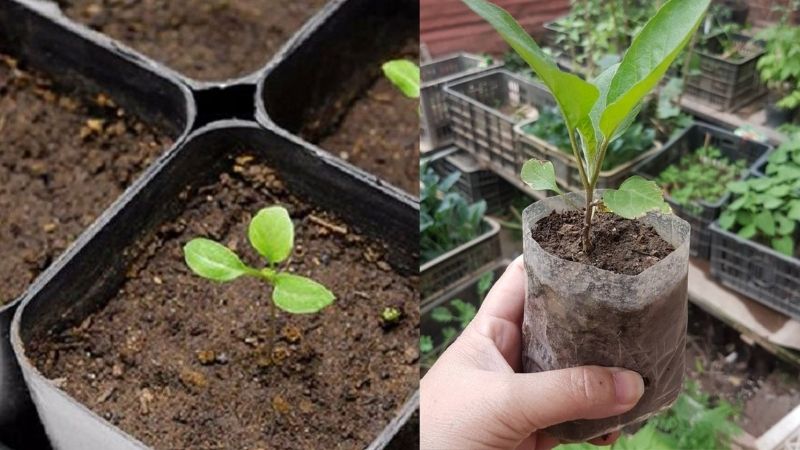 Sowing Seeds in Seed-Starting Trays
Sowing Seeds in Seed-Starting Trays
Plant 2-3 seeds in each seed-starting tray, cover them with a thin layer of soil, and gently water them with a spray bottle.
Once the seedlings reach a height of 6-8cm, select the strongest-looking plants and transfer them to the prepared plastic pots. For the first week, it’s a good idea to provide some shade and water them gently, and only plant 1-2 seedlings per pot.
Step 2 Caring for Your Eggplant Plants
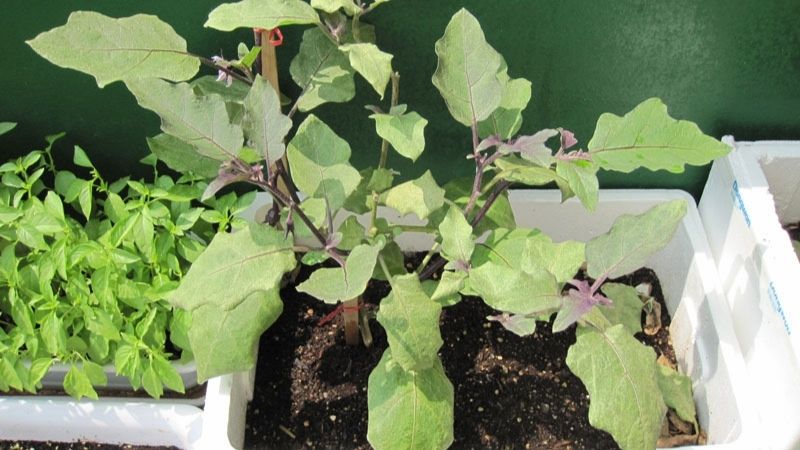 Caring for Your Eggplant Plants
Caring for Your Eggplant Plants
One week after transplanting, water your eggplants with a diluted earthworm solution to provide them with essential nutrients for healthy growth. Repeat this process every 10-12 days.
Eggplants love water, so be sure to water them frequently, especially during flowering and fruiting. Don’t let them dry out, or it could reduce your yield.
Remove any old, yellowing leaves from the base of the plant to improve air circulation.
Step 3 Harvesting Your Eggplants
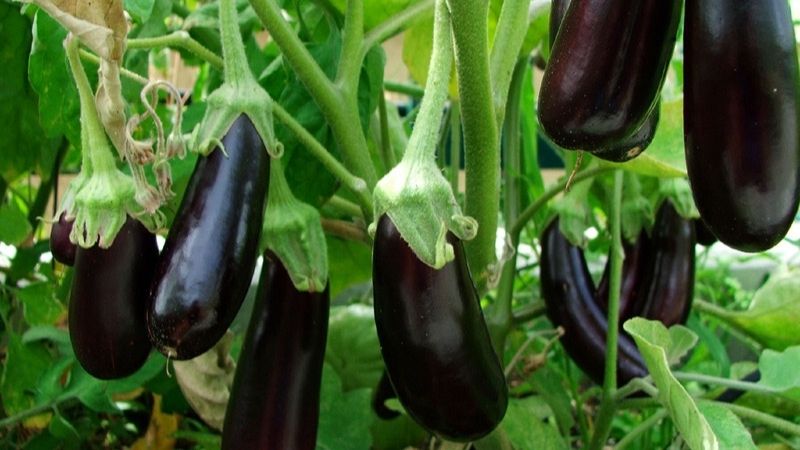 Harvesting Your Eggplants After Two Months
Harvesting Your Eggplants After Two Months
Your eggplants will be ready for harvest after about two months. You can pick eggplants every three days, and with proper care, your plant will continue producing fruit for around 4-5 months. If all goes well, your eggplant plant can bear fruit for up to 7-8 months!
3 Tips for More Successful Eggplant Cultivation
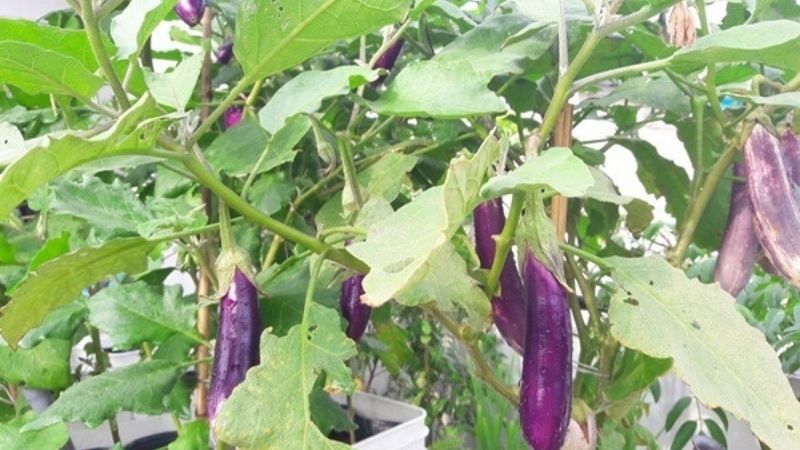 Eggplants Are Easy to Grow and Produce an Abundant Yield
Eggplants Are Easy to Grow and Produce an Abundant Yield
While you can grow eggplants year-round, the best time to plant them is during the summer, and it’s best to avoid sowing seeds during the colder months. If you want to grow them in winter, consider using a heated propagator or providing additional heat with a lamp.
If you’re short on time, you can purchase young eggplant plants from agricultural stores instead of starting from seeds.
Eggplants are ready to harvest when their skin turns from a deep purple to a lighter shade. Don’t let the fruit overripe, as it will affect the taste and tire out the plant.
Companion plant eggplants with marigolds to help deter pests and improve the health of your crop.
Eggplants are rich in antioxidants and offer numerous health benefits. They are effective in preventing various types of cancer, such as colorectal cancer, thanks to their high antioxidant content. Additionally, the presence of chlorogenic acid helps fight off harmful free radicals and slows down the aging process. Eggplants are also good for maintaining healthy blood sugar levels and preventing anemia.
We hope that with our detailed guide, you’ll be able to successfully grow eggplants and enjoy their delicious fruits with your family and friends!

































